Search
Remove Ads
Advertisement
Search Results

Definition
Gymnasium - The Ancient Greek Building for Sport & Study
The Gymnasium was a Greek building originally used for athletic activities but which came, over time, to be used also as a place of study and philosophical discussion. In the Hellenistic Period, gymnasia became highly standardized both in...
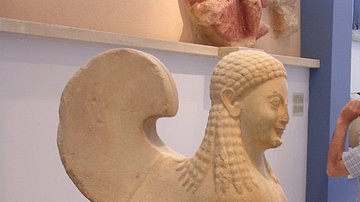
Definition
Sphinx
A sphinx is a mythical creature with the body of a lion, most often with a human head and sometimes with wings. The creature was an Egyptian invention and had a male head - human or animal; however, in Greek mythology, the creature had the...
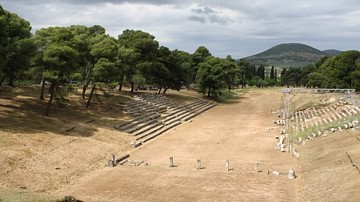
Definition
Stadium - The Sports Field of Ancient Greece
In the ancient Greek world, the word stadium or stadion referred to a measurement of distance, a foot-race, and the place where the race was held and observed by spectators. The Great Games Greek sporting events were closely connected...

Definition
Lysander
Lysander (d. 395 BCE) was a Spartan statesman and general who famously defeated the Athenian navy at the Battle of Aigospotamoi in 405 BCE, which finally won the Peloponnesian War. Lysander gained a reputation for a fiery personality, daring...
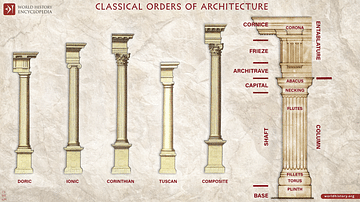
Definition
Column
The column was an architectural invention that allowed for the support of ceilings without the use of solid walls. Columns increase the space which can be spanned by a ceiling, allowing the entrance of more light. Columns also offer an alternative...
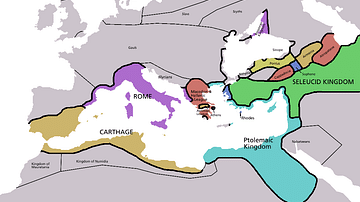
Definition
Hellenic World
The Hellenic World' is a term which refers to that period of ancient Greek history between 507 BCE (the date of the first democracy in Athens) and 323 BCE (the death of Alexander the Great). This period is also referred to as the age of...

Definition
Solon
Solon (c. 640 – c. 560 BCE) was an Athenian statesman, lawmaker, and poet, who is credited with restructuring the social and political organisation of Athens and thereby laying the foundations for Athenian democracy. Such were his accomplishments...
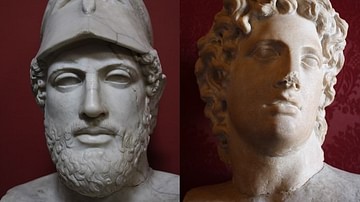
Definition
Plutarch
L. Mestrius Plutarchus, better known simply as Plutarch, was a Greek writer and philosopher who lived between c. 45-50 CE and c. 120-125 CE. A prodigious and hugely influential writer, he is now most famous for his biographical works in his...

Definition
Caryatid
Caryatid is the name given to an architectural column which takes the form of a standing female figure. The first examples come from ancient Greek architecture and indeed, the most celebrated examples are found in the south porch of the Erechtheion...
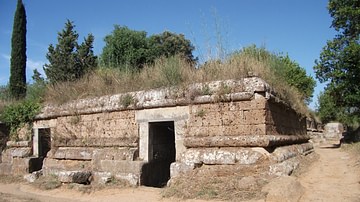
Definition
Cerveteri
Cerveteri (Etruscan name: Cisra or Caisra, Greek: Agylla, Roman: Caere) was an important Etruscan town which flourished between the 7th and 4th century BCE. Located near the western coast of central Italy, around 50 km north of Rome, Cerveteri...